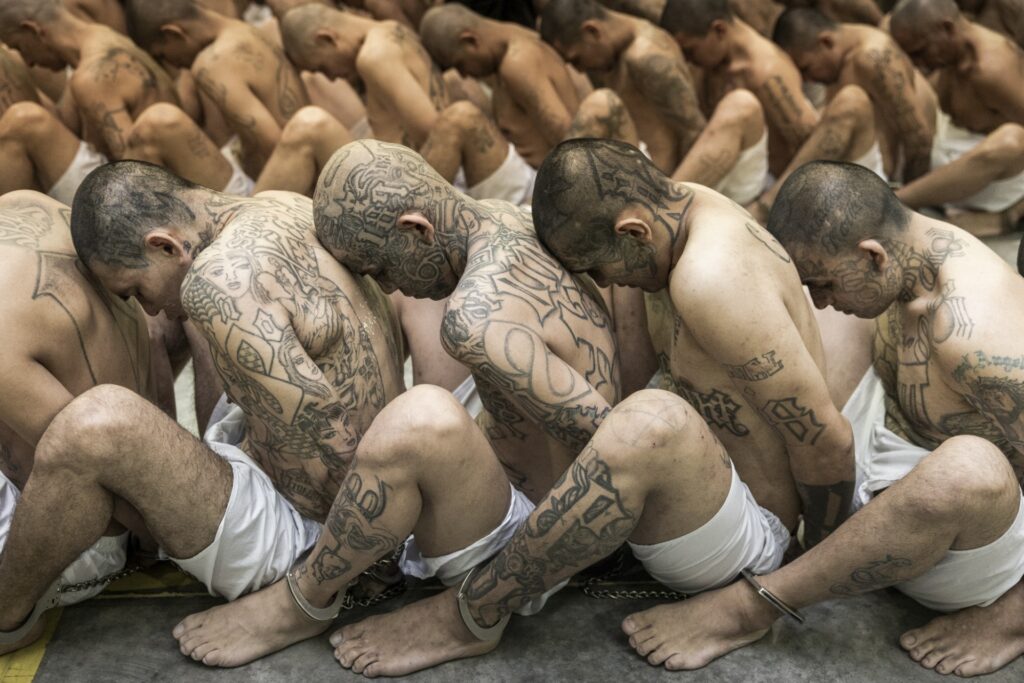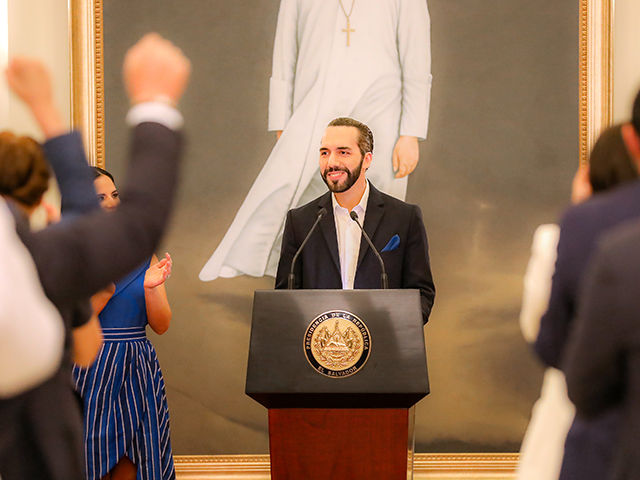A survey published by Colombian polling agency Datexco on Monday found that 55 percent of Colombians would like to have a president like El Salvador’s Nayib Bukele in their country.
The poll, held by Datexco between May 10-12, also asked respondents their stance on the controversial 40,000-bed “mega prison” built by the Salvadoran government known as the Center for the Confinement of Terrorism (CECOT). 67 percent of respondents expressed agreement with its construction, while 17 percent disagreed with it.
The poll’s Bukele-related questions were included in light of the upcoming October regional elections, where some of the candidates have expressed their intention to bring Bukele’s security model to Colombia if elected.
Datexco’s survey also saw a slight improvement in the disapproval ratings of the nation’s far-left President Gustavo Petro, whose disapproval ratings have continuously been on the rise ever since he took office in August and presently hover at 58 percent. That number is down from last week’s record-breaking 61 percent, which followed Petro claiming that any attempt to curtail the far-left reforms his government has so far been unable to pass “could lead to a revolution.”
Petro, a former member of the Marxist M19 guerrilla and Colombia’s first-ever leftist president, has been critical of Bukele’s security policies. In March, the far-left Colombian president sparked a feud after calling the CECOT “mega-prison” a “concentration camp” in a speech given during the official inauguration of a new university in the capital city of Bogotá.

In this photo provided by El Salvador’s presidential press office, inmates identified by authorities as gang members are seated on the prison floor of the Terrorism Confinement Center in Tecoluca, El Salvador, Wednesday, March 15, 2023. (El Salvador presidential press office via AP)
“The terrible photos — I can’t go into other countries — of the concentration camp in El Salvador, full of thousands and thousands of young people imprisoned, it makes one shudder,” Petro said. “I think there are people who undoubtedly like that, to see the youth in jails and believe that this is security, popularity soars. Undoubtedly, we also experienced this in Colombia.”
Unlike Bukele’s policies and El Salvador’s fierce crackdown on gang violence — which led Bukele to claim last week that his country has gone a total of 365 days without homicides ever since he took office in 2019 — Petro has opted to enact a “total peace” plan based on negotiating with criminal organizations and guerillas, education plans, and social rehabilitation programs.
Petro’s policies, however, are yet to produce comparable results to that of El Salvador. Six of Colombia’s cities took a spot in February’s list of 50 most violent cities in the world, compiled by the NGO Citizens’ Council for Public Safety.
Homicide and violence rates have increased across Colombia’s cities since Petro took office. The Colombian city of Cali, the nation’s most violent according to February’s list, registered 257 homicides between January 1 and April 1 — at a rate of 2.8 homicides per day — representing a 1.6 percent increase when compared to April 2022. Cali also documented 6,025 theft reports between January and March 2023, up from 4,928 that were registered in that same period last year.
Colombia has also seen a dramatic reduction in cocaine seizures between January and February 2023 when compared to the same period in 2022. Petro has repeatedly expressed that he deems cocaine to be less “poisonous to humanity” than coal and oil.
One of the major negotiations of Petro’s “total peace” plan involves holding peace talks with the Marxist-Lenininst National Liberation Army (ELN) guerilla. The negotiations, which had initially started in neighboring Venezuela under the auspices of socialist dictator Nicolás Maduro, have not gone as smoothly as Petro anticipated. ELN representatives put the project “on pause” on Monday, citing “contradictions” by Petro, who they called “disrespectful.”
Reports published in April showed that the number of attacks and other violent actions attributed to ELN forces had tripled during March when compared to the average registered during the past 12 months.
Petro’s security policies were one of the main reasons that prompted thousands of Colombia’s retired military and police officers to peacefully protest against the far-left president last week in the latest of a now-recurring series of peaceful protests against Petro and his administration.
Bukele, whose crackdown on gang violence and security policies have secured him a continued high approval rating that hovers around 91 percent, shared the results of the Datexco poll through his Twitter account on Monday afternoon.
Christian K. Caruzo is a Venezuelan writer and documents life under socialism. You can follow him on Twitter here.

COMMENTS
Please let us know if you're having issues with commenting.